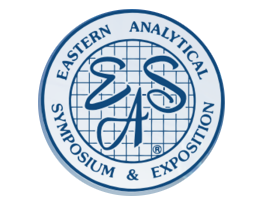Two-Day Course
Tuesday, Nov. 19 – Wednesday, Nov. 20; 8:30am – 5:00pm
Dr. Zenaida Otero Gephardt, Otero Associates, Wilmington, DE
COURSE DESCRIPTION
This two-day course includes the fundamentals of quality-by-design in the analytical laboratory. The background and basic principles of quality-by-design (QbD) will be discussed in the context of applications in the pharmaceutical and chemical industries. The conceptual framework for QbD operation in the analytical laboratory will be discussed in detail with emphasis on critical quality attributes and critical process parameters (CQA, CPP). QbD in experimental program design, and data collection and analysis will be highlighted. Building quality in all aspects and phases of analytical laboratory experimentation and processing results in better decisions and more efficient and cost-effective operation. Course participants will be able to immediately use the techniques presented to enhance their effectiveness in data collection and analysis. Practical applications will be used to demonstrate QbD techniques throughout the course.
This two-day course can also be taken as a one-day course:
* Quality-by-Design Fundamentals for Optimal Operation in the Analytical Laboratory
* Design of Experiments for Analytical Chemists: Key to Effective Quality-by-Design Laboratory Operation
WHO SHOULD ATTEND
Analytical chemists at all levels will benefit from this course. Laboratory supervisors and technical personnel involved in data analysis and reporting will also benefit.
TOPICS
| Part One | Part Two |
| 1. Introduction to QbD and General Background 2. Building Quality from the Initial Concept in Experiments and Assays 3. QbD Steps for Optimization of Experimental Programs 4. Critical Quality Attributes (CQA) and Critical Process Parameters (CPP) 5. Data Quality Measures 6. Metrics for Comparisons to Specifications 7. Metrics for Detection of Variables’ Impact on Experiments and Investigation 8. Continuous Improvement Techniques in the Laboratory 9. QbD of Experiments (Design of Experiments): Basics and Motivation |
1. Background and Introduction to QbD Experimental Design Optimization 2. Experimental Designs for Simple Linear and Pseudo-Linear Systems 3. Identifying Key Variables Using Experimental Designs 4. Experimental Designs for Initial Stages of Experimental Program: Scouting Designs 5. Experimental Designs for Complex Systems 6. Experimental Designs for Mixtures 7. Continuous Improvement: Evolutionary Experimental Designs |
ABOUT THE INSTRUCTOR
Dr. Zenaida Otero Gephardt is Associate Professor of Chemical Engineering at Rowan University (Glassboro, NJ) where she has served as Director of Engineering and Assistant Dean. Dr. Gephardt is also a consultant through Otero Associates. Her research focuses on optimization, development and mathematical modeling of chemical processes and laboratory techniques. She has developed statistical models and experimental designs for a wide range of chemical processes including high pressure, supercritical systems, multi-phase systems and aquaculture applications. Dr. Gephardt has worked with a wide range of system scales ranging from bench scale laboratory systems to large-scale industrial application, and has over 20 years experience in analysis and optimization applications in the chemical process industry. She teaches on-site courses for industry and provides analysis and experimental design support. Dr. Gephardt is a Fellow of the American Institute of Chemical Engineers (AIChE) and is a registered Professional Engineer in Delaware. She holds a Ph.D. in chemical engineering from the University of Delaware

